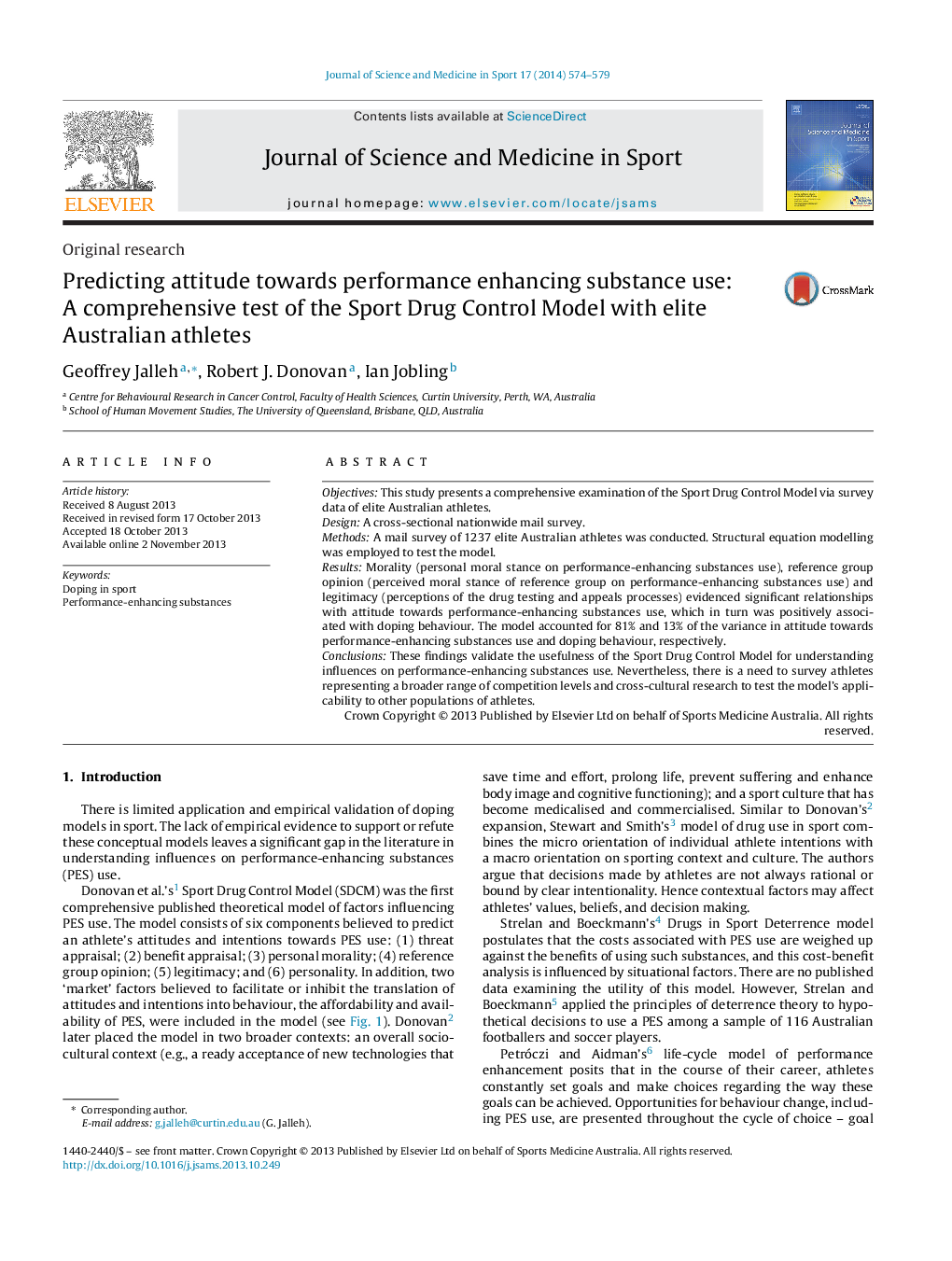| Article ID | Journal | Published Year | Pages | File Type |
|---|---|---|---|---|
| 2701407 | Journal of Science and Medicine in Sport | 2014 | 6 Pages |
ObjectivesThis study presents a comprehensive examination of the Sport Drug Control Model via survey data of elite Australian athletes.DesignA cross-sectional nationwide mail survey.MethodsA mail survey of 1237 elite Australian athletes was conducted. Structural equation modelling was employed to test the model.ResultsMorality (personal moral stance on performance-enhancing substances use), reference group opinion (perceived moral stance of reference group on performance-enhancing substances use) and legitimacy (perceptions of the drug testing and appeals processes) evidenced significant relationships with attitude towards performance-enhancing substances use, which in turn was positively associated with doping behaviour. The model accounted for 81% and 13% of the variance in attitude towards performance-enhancing substances use and doping behaviour, respectively.ConclusionsThese findings validate the usefulness of the Sport Drug Control Model for understanding influences on performance-enhancing substances use. Nevertheless, there is a need to survey athletes representing a broader range of competition levels and cross-cultural research to test the model's applicability to other populations of athletes.
